Tennis
What life on tour is really like
I’ve spoken about my time away from tennis in 2011 after shoulder surgery and the end of my marriage, but never in depth about how low I went. Alcohol became my escape. Any chance I got to have a drink, I’d take it. At one stage, to be honest, I didn’t know if I’d be able to stop.
Not many people actually knew how bad it was. A few who were close to me did and I had a couple of good mates down here from Albury who looked after me really well, because I was not in a good place. Thankfully they did, because I might not have been here if things hadn’t changed.
Playing suburban footy that season helped me a lot – just getting a good group of people around me who didn’t care about me being a tennis player. I was just another guy, one in a group of mates, and then at the end of that year I met Britt, my fiancée.
Getting my life sorted out helped me with my tennis, then tennis helped set me up for the rest of my life. But I needed to find myself before I was able to become a better tennis player. Tennis was a huge part of me even when I quit, and if I’d walked away and never come back, it would have been something I really regretted.
I’m lucky that during that time I did meet Britt and turned the personal side of my life around first. Tennis is a very tough, lonely sport, and even though I was married through the first part of my career it wasn’t really the best personal set-up. In 2011, the fact that I didn’t have either a private or professional life that was really steady brought everything undone.
And in 2015, when I was flying on court, who knows if I hadn’t had that other side of my life going well whether I would have spiralled out again and had another crash? But the fact that I had Britt and I had a really good personal set-up made it easier to get through the downturn after 2015.
It also helped me come to this decision to retire, to walk away and feel happy about it.
‘YOU’VE JUST LOST’
I don’t know how I’ll feel when I walk out for my last Australian Open, but I hope it’s better than the last time I was playing singles. The last month, in the US, I felt sick just walking on to play matches.
I’d struggled for the past year-and-a-half, since I had my foot problem, and I wasn’t really enjoying it. I was sort of just hanging on.
I made a throwaway comment to my coach Billy Heiser after I lost in qualifying at the US Open that, ‘If I’m gonna keep playing like this, then what’s the point?’ And at the time, he said, ‘Well, you’ve just lost.’
Then after I didn’t get to the Davis Cup semi in Belgium, I came home to Australia, and because Davis Cup has been such a big thing for me over the last three or four years I was hoping we could get to a final and I could be a part of that. But suddenly that possibility was at least 12 months away.
And normally when I’m home in Melbourne for two weeks I’m really ready to go again, I get a bit stir-crazy, but in my head all I could think of was how could I find a way to a stay home a little bit longer?
I’ve never been like that. As a tennis player you get used to that lifestyle, but I really didn’t want to go.
Getting my life sorted out helped me with my tennis, then tennis has helped set me up for the rest of my life. But I needed to find myself before I was able to become a better tennis player.
I didn’t say anything to anyone at the time, I didn’t even really say anything to Britt. She knew I’d been struggling with my tennis but she didn’t know I’d been thinking about this.
She thought, like a lot of people probably did, that when I called time on singles I would at least go out and give doubles a go, because I’ve had pretty consistent doubles results over a long period for someone who’s not really focusing on that side of things.
So I got to California and after I lost my first match, I went out and had a couple of drinks with a few of the guys on a yacht in the bay in San Francisco. It was really nice, and I woke up the next morning and said to Britt, ‘I’m retiring.’
She said, ‘What?’ I said, ‘Yeah, I’ve had enough, I don’t want to do this anymore.’
I didn’t announce anything but a lot of people close to me knew that was pretty much it. I was trying to push through those few weeks and I was still meant to go to Japan at the end of the year, I was in Vegas for my 30th birthday and I just wanted to get on a plane and come home. It all unfolded very, very quickly.
I’m playing singles qualies at the Australian Open. A wildcard would obviously be very nice, but I never expected one. I never have in my whole career.
I’m doing everything I can to be fit and ready for January. I’ve still trained through this whole period, and if I get a wildcard, fantastic, that’s a bonus. If not, I’m ready to go out there and play qualies. I’ll be out there in doubles, I’ll be playing mixed, I’m still going to be part of the Australian Open.

What I’ll miss most
I’ve had to start thinking, ‘What do I actually do next?’
That’s very much an unknown for me. I haven’t got things locked down, no stuff guaranteed, so it will feel weird whenever that last match finishes in January to still wake up at 7am but not have my days filled with hours of training.
Obviously, Lleyton Hewitt stepped straight into the Davis Cup role when he retired, and I’ve talked to him and a lot of other people about what it’s like when you actually step away.
I’m 30 years old, it’s not like 65 or 70. There’s a long time left in my life, so I’ve got to find something, or a number of things, that can keep me going.
As well as the camaraderie, I know I’ll miss the competition. That will probably be the hardest thing. If I go into the media, for example, which is something that I’ve looked at doing for quite a while, I don’t think the competitive side of my personality is ever going to go away, so I’ve got to find other ways to fill that void.
It’s going to take some time to work out what the next stage looks like. I don’t want to just rush into something that doesn’t excite me. I’ve given everything I had to tennis; I have no doubt that whatever I decide to do I’m going to give 100 per cent to.
Coaching at the elite level would mean returning to that lonely lifestyle, and I don’t feel coaching younger kids would be the best fit for me at the moment. I was never the most talented guy.
Yes, I had a fast serve, but I had to work really hard to get to where I did. So I feel like I can help some of the other Aussie guys make the transition to that top level, but do I want to be on the road for 30 weeks a year? At this stage, definitely not.
A guy like Lleyton got the most out of himself and got to No.1. I got the most out of myself and I got to No.53 in the world and I’m also extremely happy with that.
I felt I was probably on the way to going a little bit higher if I hadn’t got injured, but at the same time if you’d told me in 2011 I would have been 53 in the world, I would have taken that in a heartbeat.

Team lleyton
I hit balls with Lleyton almost every day and we had a lot of discussions about me stopping. We played a lot of big matches together and he’s a really good mate of mine, too.
I said to him that I wanted to play doubles with an Aussie in my last Aussie Open, but obviously a lot of the partnerships were already set.
So in trying to find the best possible option while also making my last one something special, we half threw the idea of playing doubles together out there as a joke.
Lleyton laughed and said, ‘Well, I’m not the worst option, am I?’ But obviously as Davis Cup captain, he’s involved in all these wildcard decisions, so we had to run it by a lot of people. From a tournament’s point of view, though, it’s always great to have Lleyton Hewitt in the draw and on the schedule.
Singles-wise, I can play relaxed. It’s not about my ranking or anything like that.
The finish line is getting closer. Going into it, I think I’ll feel all right. Coming out of it all? Maybe I’ll have a big run in singles, or doubles or mixed, where I’m playing with Sam Stosur again. How I’m going to feel at the end of it is probably the biggest unknown.

Stuffing cash in shoes
Tennis is two separate worlds. If you’re playing the ATP 500 event in Washington, for example, you’re staying at the nicest hotel, where the player party in the rooftop bar looks out over the White House gardens, and it all seems so great.
Then you end up in a hotel in Uzbekistan where the water doesn’t get to the third floor. And for guys who float on the cusp of the top echelon, from 60 to outside 100, 200, it literally does change week to week.
As well as the camaraderie, I know I’ll miss the competition. That will probably be the hardest thing.
Tennis is a strange world and it’s hard to explain that to people. It looks very glamorous and I don’t take it for granted that I’ve travelled the world and I’ve seen all these unbelievable places and I’ve had the chance to live in London and live in the States.
But at the same time it’s pretty lonely. It’s not always what it seems.
I remember being in Uzbekistan back in the day where some tournaments still used to pay their prizemoney in cash. When you arrived in the country, you had to declare on your customs form how much money you were bringing in, and I only found out the night before I left that you can’t take more money out of Uzbekistan than you take in.
One year I made about $3000 by making a Challenger final there, but I’d declared that I’d brought in $800 in cash, so I remember sitting in my hotel room and wrapping $100 notes under the grips on my racquets so it wouldn’t be confiscated.
Other guys put money under the insoles of their shoes. Obviously when you’re playing at Challenger level and you have a good week that’s very valuable money.

DARk side of social media
Playing Davis Cup had been a lifelong dream, and I made my debut in Perth in 2014. But winning the 2015 quarter-final from 0-2 down against Kazakhstan in Darwin was incredible.
The doubles, with Lleyton, was the first time I’d won a live rubber, and to win the first reverse singles against Mikhail Kukushkin, who’s a very established Davis Cup player, was pretty special.
Then to go to from such a massive high to the semi-final against Britain in Glasgow and lose to the Murrays over five sets in a match that, if we’d won, we would have probably put ourselves into a Davis Cup final was probably one of the hardest losses I ever took.
Davis Cup has been unbelievable, and so was the chance to go to the Olympics. It’s something greater than tennis. No one can ever take away from me the fact that I’m an Olympian.
And from a personal point of view, there’s been so many highlights: making the third round at Wimbledon and having the chance to step out on centre court against Roger Federer; playing Roger again on Arthur Ashe Stadium at the US Open; and playing on Rod Laver Arena against Andy Murray.
For a kid who came from the bush and then in 2011 walked away from the sport and probably at that time was never gonna come back, to be able to play against some of the greatest players of all time on some of the biggest courts in the world is something that I’ll be able to one day tell my kids about.
What I won’t miss are the haters on social media.
It’s the world we live in now, everyone wants information and social media’s a big part of everything we do. It’s how you build your fan base and how you market yourself to companies and build your brand commercially, but at the same time there’s some pretty ordinary stuff out there.
I’ve copped any number of death threats against me and my family from people who wish bad things, and it’s not a nice thing to have to go through.
You can say you don’t read it, but at some stage when you’re feeling a bit down – which happens, you don’t win every week – and you pick up your phone and you’re reading this stuff, sometimes it’s not easy. I’ve done it.
You start writing back occasionally and then you pull your head in, and realise that these people are pretty insignificant in the scheme of things.

Tomic’s big question
Australian tennis is in an interesting place. We have some unbelievably talented guys, but it’s hard to know how everything will pan out. A guy like Nick Kyrgios, for example, he’s Nick. He does what he does.
Nick could come out in 2018 and all of a sudden grow up a little bit and be top five. The guy could be No.1 in the world. Or he could continue to do some of the things that he seems fine with and pretty comfortable doing – and good on him for that because he’s being him. He could sit at 20 in the world and do that pretty easily for a long period of time.
We’re building a really good culture around Davis Cup. We say it a lot and I’m not sure how seriously people take what we say, but it’s a great group to be part of, and unfortunately for Bernie Tomic, for example, he’s taken himself out of that support network and I think it has affected him.
In a period where he’s struggling with some things, I feel like the group could have helped him work through it.
Nick seems really happy right now, and there are times when he hasn’t, but he’s got that support around him with all the guys. We all speak and message each other and it just helps. The tour really is a lonely place, and to have a group of guys who are there, win or lose, all the time, is so helpful and important. It’s great that Nick’s embraced that, and sad that Bernie hasn’t.
It’s a great group to be part of, and unfortunately for Bernie Tomic, for example, he’s taken himself out of that support network and I think it has affected him.
Bernie’s been as high as 17th in the world, so there’s no doubt that he can play tennis. A little bit like I had to work through Sam Groth finding out who Sam Groth was, Bernie has to do that because Bernie’s only known himself as Bernie the tennis player.
Maybe, first of all, Bernie has to find out who Bernie actually is.
I think Nick will find his path. He’s slowly doing it. We all know that the media loves to jump on and make a story out of everything, and Nick’s a sensitive guy who reads everything written about him.
Maybe he needs to be a little more more water-off-a-duck’s back about it all, but he’s still young. Not too many people have found themselves at 21 or 22 years old. I’m still finding myself at 30, so Nick’s still got some time to work out who Nick is, as well.

Tattoos & meaning
I’d like to be remembered as someone who got the maximum out of himself. I’m a proud and passionate Australian and every time I played for my country, I left everything out there. I don’t think I’ve ever played a match where I haven’t given 100 per cent.
Would I do anything differently if I had my time again? I probably wouldn’t get married at 21, but that all shaped me to become the person I am, and if I hadn’t done that and had those life lessons maybe I wouldn’t have got to where I have.
Everyone always looks back, and hindsight’s a nice thing, but I’m pretty happy with where I’m at and the person I am and the career I’ve had and the life I’ve built and the life I’m building. So, no, I don’t think I’d change too much.
For a kid who came from the bush and then in 2011 walked away from the sport and probably at that time was never gonna come back, to be able to play against some of the greatest players of all time on some of the biggest courts in the world is something that I’ll be able to one day tell my kids about.
The tattoo on my right arm says, ‘Damned is the man who abandons himself’. I got that when I was working my way back in 2013 or 2014 and I was still outside the top 100.
It’s significant to me because you’re going to have doubters and haters and people who give up on you along the way, but you can never give up on yourself. I’m proud that I didn’t, because there was a time when I was close.
But I bounced back. I’m in a good place now. To know that I won’t have tennis but I’ve got all these other really great things in my life is an amazing thing.
More about: Australian Open | Davis Cup | Lleyton Hewitt | Sam Stosur
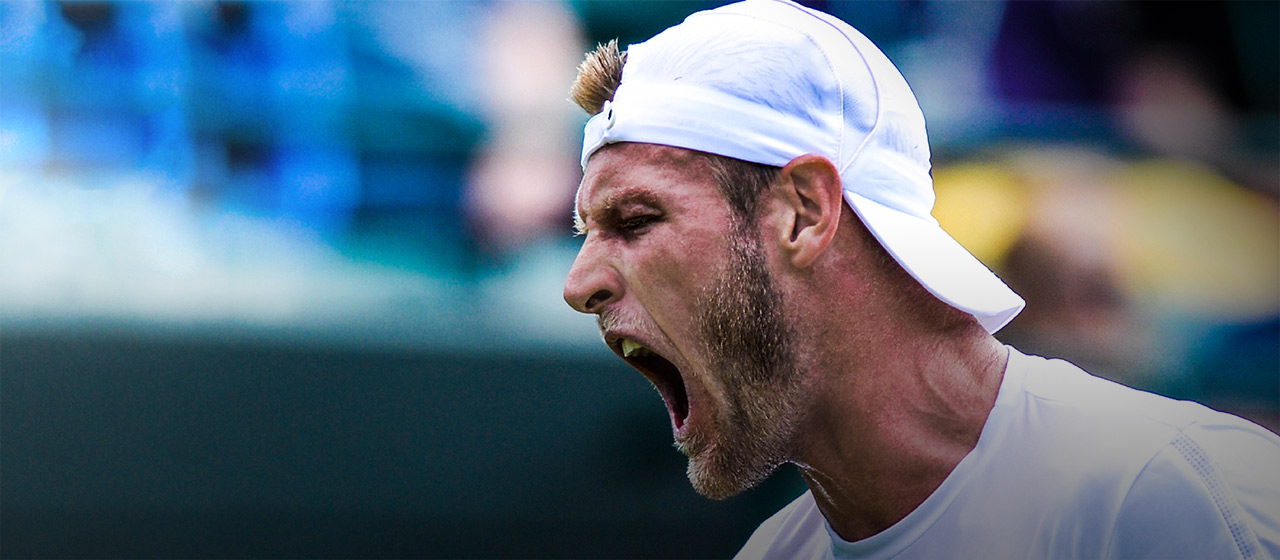
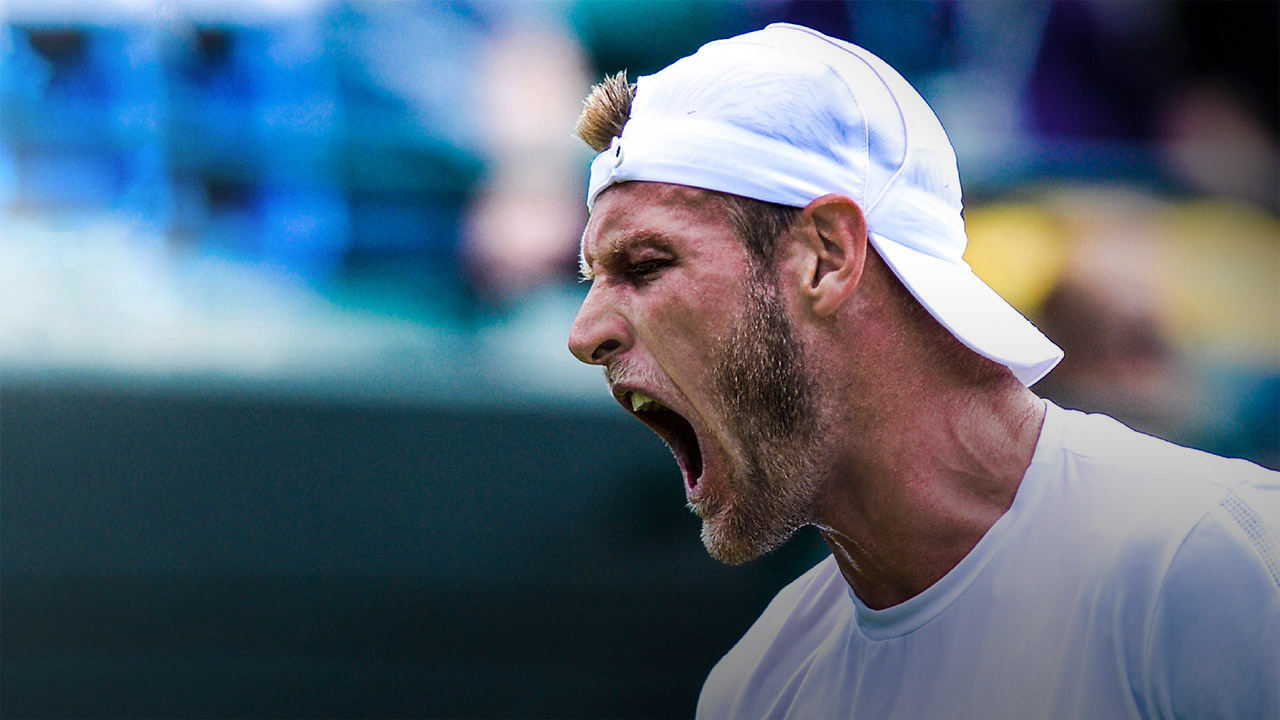
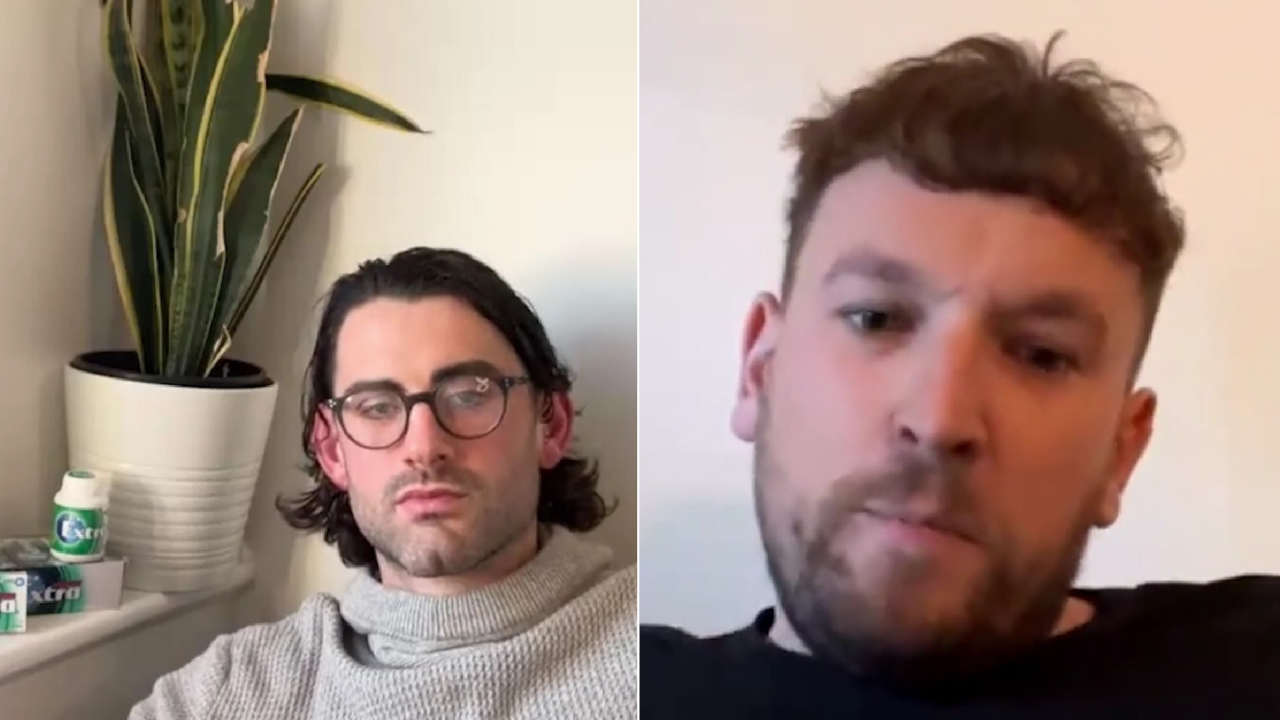
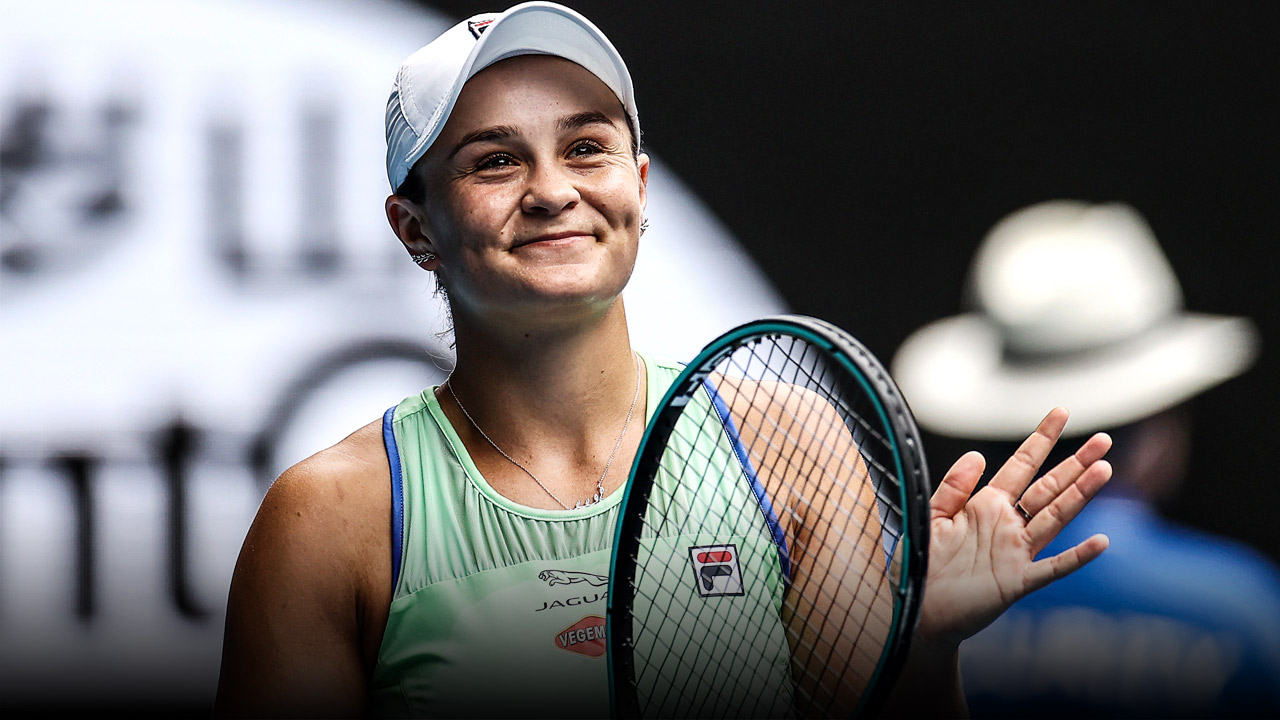
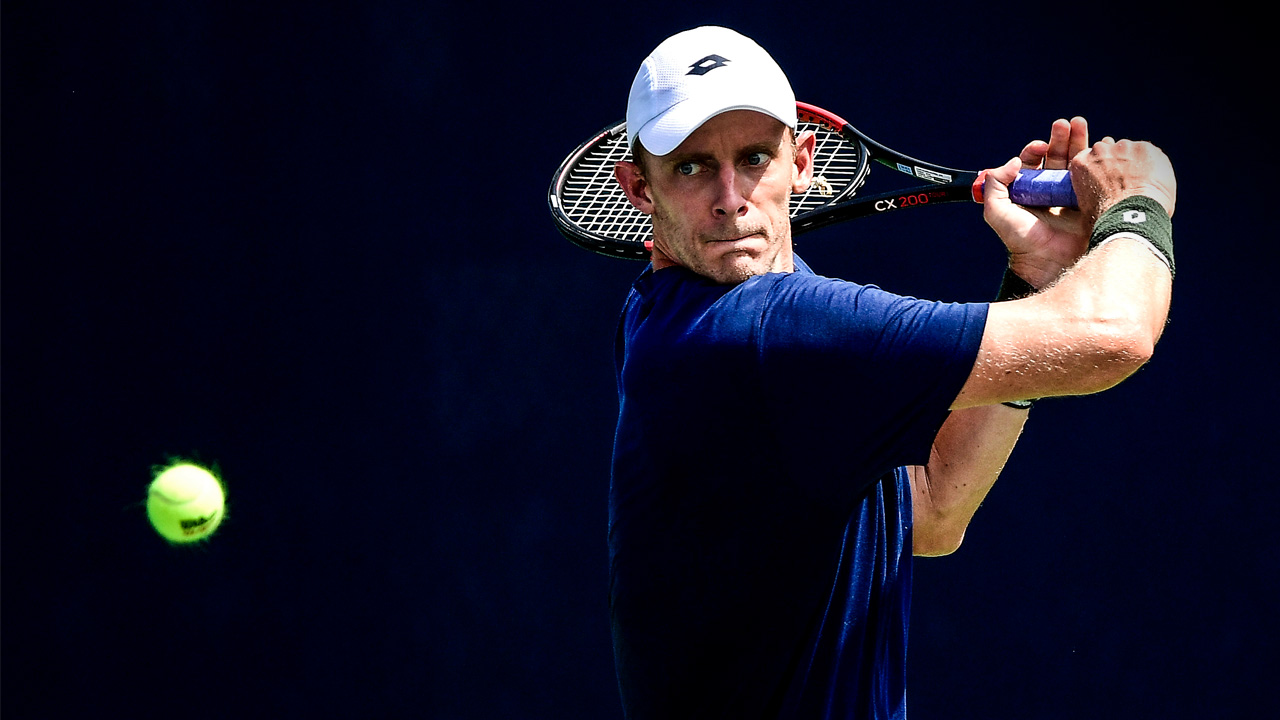
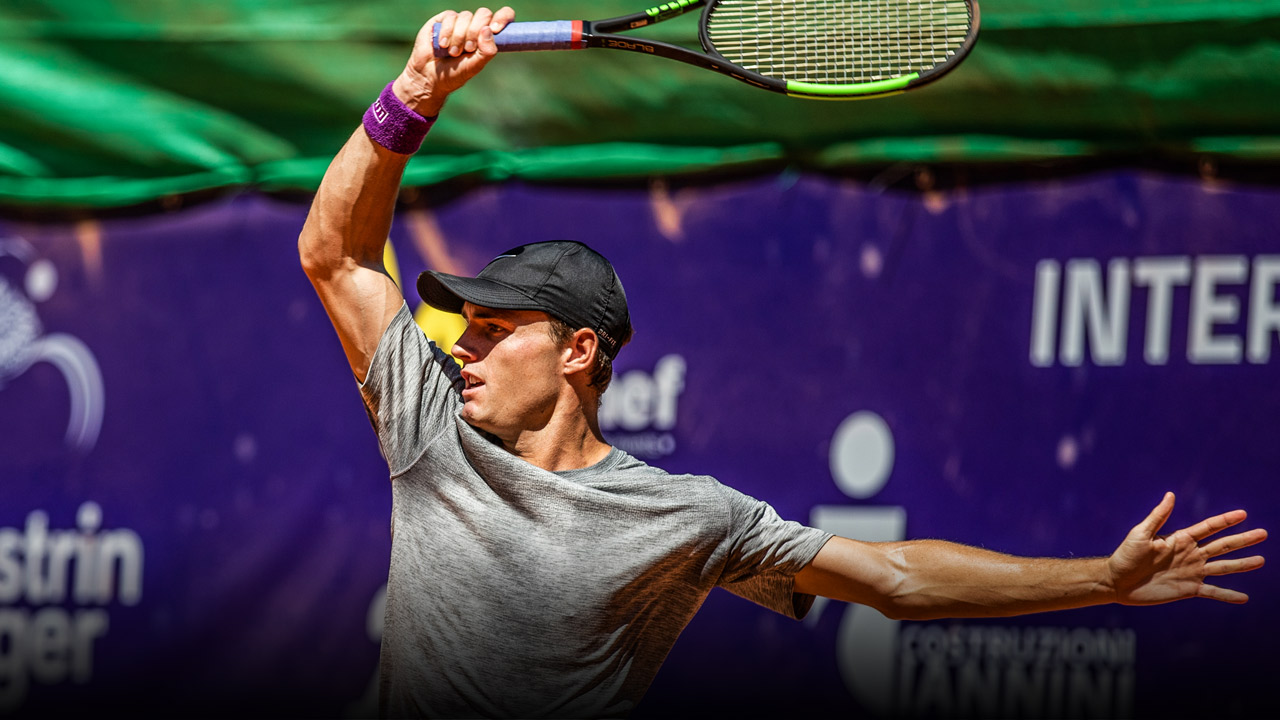
 Load More
Load More